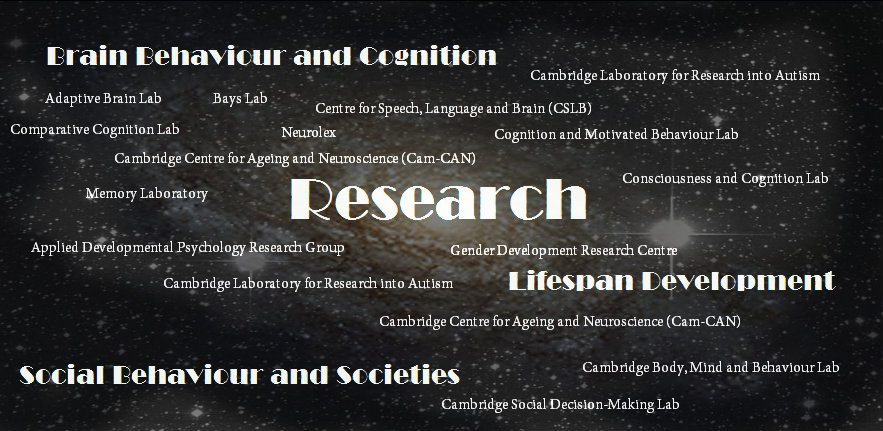Dr Amy Orben
Easter Term 2023
| Date | Topic | Location |
| Tuesday 25 April 2023 - 3-5pm | Introduction - Overview of the course contents and aims; the scientific process; Merton’s norms; the replicationcrisis and how it began; defining Open Science. | CBU Lecture Theatre, MRC Cognition and Brain Sciences Unit, 15 Chaucer Road, Cambridge CB2 7EF |
| Tuesday 2 May 2023 - 3-5pm |
QRPs and Replications - Part I: Defining and discussion Questionable Research Practices and their influence on scientific inference in psychology; false-positive psychology and researcher degrees of freedom, multiverse approaches. Part II: Replications and why they started a crisis; understanding replications; backlash and counter-backlash; replications in other disciplines; the Many Labs movement. |
CBU Lecture Theatre, MRC Cognition and Brain Sciences Unit, 15 Chaucer Road, Cambridge CB2 7EF |
| Tuesday 9 May 2023 - 3-5pm |
Preregistration and Registered Reports - Pre-registration and Registered Reports; the split between exploratory and confirmatory hypothesis testing; arguments for and against the drive towards preregistration; scientific creativity; blinded analyses. |
CBU Lecture Theatre, MRC Cognition and Brain Sciences Unit, 15 Chaucer Road, Cambridge CB2 7EF |
| Tuesday 16 May 2023 - 3-5pm | Fraud, Errors and Scientific Self-Correction - Understanding what makes fraud different from errors; methods used to detect errors; whether scientific self-correction is myth or reality; scientific errors and debates about how to address them. |
CBU Lecture Theatre, MRC Cognition and Brain Sciences Unit, 15 Chaucer Road, Cambridge CB2 7EF |
| Tuesday 30 May 2023 - 3-5pm |
Journals, Publishing and Reproducibility - Introduction to the for-profit publishing model; new forms of publishing; pre-prints; Open Access; peer review; Open Data |
CBU Lecture Theatre, MRC Cognition and Brain Sciences Unit, 15 Chaucer Road, Cambridge CB2 7EF |
| Tuesday 6 June 2023 - 3-5pm |
Rethinking Diversity - In this session you will be introduced to the challenges in defining diversity and discuss how open science promotes and hinders diversity in research. More practically, you will learn ways to operationalize different layers of diversity (such as geographic, sociodemographic, or cultural diversity) when evaluating research. You will be trained to reflect critically on how research limitations impact the generalizability of conclusions and reposition intellectual humility as a core skill. |
CBU Lecture Theatre, MRC Cognition and Brain Sciences Unit, 15 Chaucer Road, Cambridge CB2 7EF |
| Tuesday 13 June 2023 - 3-5pm | What the p-values really tell us (+Power) - p-values; Error Rates; Null Hypothesis Significance Testing and criticism; 'Redefine Significance' vs 'Justify your Alpha' vs 'Abandon Statistical Significance'; Bayesian methods | CBU Lecture Theatre, MRC Cognition and Brain Sciences Unit, 15 Chaucer Road, Cambridge CB2 7EF |
| Tuesday 20 June 2023 - 3-5pm | Psychology as a Robust Science - What makes robust inferences; triangulation and causality; theory and measurement; incentives and next steps. | CBU Lecture Theatre, MRC Cognition and Brain Sciences Unit, 15 Chaucer Road, Cambridge CB2 7EF |
This course is relevant for any behavioural, neural or clinical scientists with some focus on experimental and/or quantitative methodology.
Summary: Are the behavioural sciences a robust science? To answer such a question, this course will encourage you to think critically about how behavioural research is conducted and how conclusions are drawn.
To truly understand how behavioural research functions as a science, however, this course will also need to discuss how scientists are incentivised, how they publish and how their beliefs influence the inferences they make. By engaging with such issues, this course will probe and challenge the basic features and functions of our disciplines. We will uncover multiple methodological, statistical and systematic issues that could impair the robustness of scientific claims we encounter every day. We will discuss the controversy around behavioural science and the replicability of its results, while learning about new initiatives that are currently reinventing the basic foundations of our field. The course will equip you with some of the basic tools necessary to conduct robust behavioural science research fit for the 21st century.
The course will be based on a mix of set readings, class seminars and lectures. Readings will include a diverse range of journal articles, reviews, editorials, blog posts, newspaper articles, commentaries, podcasts, videos, and tweets. No exams or papers will be set; but come along with a critical eye and a willingness to discuss some difficult and controversial issues.
Core reading: this is a very good book to read in preparation or during the course; it is not available electronically from the University Library but you could request it from your college library
- Stuart Ritchie (2020). Science Fictions. London, UK: Penguin.
Additional core readings
- Chris Chambers (2017). The 7 deadly sins of psychology: A manifesto for reforming the culture of scientific practice. Princeton, NJ: Princeton University Press.
- Zoltan Dienes (2008). Understanding Psychology as a Science. London, UK: Palgrave MacMillan.
- Sophia Crüwell, Johnny van Doorn, Alexander Etz, Matthew C. Makel, Hannah Moshontz, Jesse C. Niebaum, Amy Orben, Sam Parsons, and Michael Schulte- Mecklenbeck (2019). ‘Seven Easy Steps to Open Science’. Zeitschrift Für Psychologie 227,no. 4: 237–48. https://doi.org/10.1027/2151-2604/a000387.
- Charlotte Pennington (2023). A Student’s Guide to Open Science. McGraw-Hill Education.
Structure
- You will be asked to examine the syllabus before the session and do any required reading or assignments.
- The in-person teaching on Tuesdays will start with a 1-hour lecture (3-4pm). There will be a break after the lecture and before the seminar to get a tea or coffee.
- We will engage in a 1-hour seminar (4-5pm), these will allow you to ask questions, discuss controversial topics and unresolved issues with your classmates.
While the seminars (4-5pm) are not mandatory to attend they are highly recommended.
Further details of the course and recordings from the sessions are available on Moodle via this link -
https://www.vle.cam.ac.uk/course/view.php?id=245312

